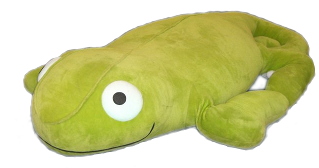 Yesterday I did a new release of Kraft, the KDE application to create and manage business documents in the small enterprise. It is version 0.43, the former one was 0.42, release in april 2011. Both releases, where the latter is a kind of maintenance release of the first are the result of a comparable high development effort of the underlying code in catalog handling and document lists in Kraft.
Yesterday I did a new release of Kraft, the KDE application to create and manage business documents in the small enterprise. It is version 0.43, the former one was 0.42, release in april 2011. Both releases, where the latter is a kind of maintenance release of the first are the result of a comparable high development effort of the underlying code in catalog handling and document lists in Kraft.
The document lists consisting of a latest, complete and time sorted view are now fully based on one Qt interview model feeding the views. That was a step because the original code was based on Qt3’s treewidget code. The result is convincing: the time needed to build up all views with a couple of thousand documents went down from around 20 seconds with the old implementation (which of course was not optimized) to almost nothing now. A nice result.
The catalog management got also a fundamental change, it can handle an arbitrary depth of catalog chapters now instead of only one. That makes a catalog chapter hirarchie in which templates can be moved around by drag and drop. Complete sub chapters can now be moved now from the catalog to the document quickly to speed up the assembly of documents covering standard workflows. Moreover this change in the underlying catalog data structure was an important prerequisite to implement reading of standard catalog formats such as DATANORM in later releases.
Krafts development is still going slowly, but steadily. There are quite some ideas on how to move on with Kraft:
- Kraft Mobile – spin off a mobile app working on the new form factors providing useful functionality
- support for DATANORM and friends, which would allow reading standard template catalogs provided by suppliers.
- Alkimia support which would head into accounting functionality together with the other KDE financial applications
- continue on shared Kraft, which utilizes the Owncloud project as a document and catalog sharing platform
- support sub documents and more structured documents in Kraft
- more project management capabilities in Kraft
All of these ideas are interesting and quite some work. I haven’t decided yet. If you think you want to influence Krafts future, let me know your arguments, most preferably on the Kraft mailinglist. If you even feel like you want to work on an interesting KDE application, please let me know, I’d be happy to share everything 🙂

